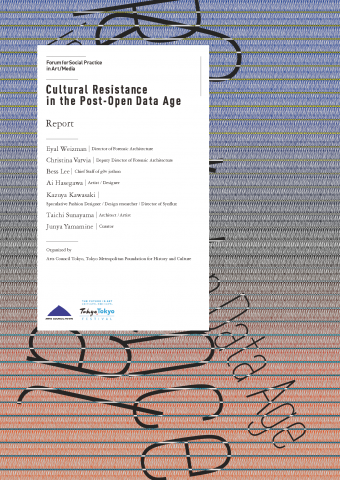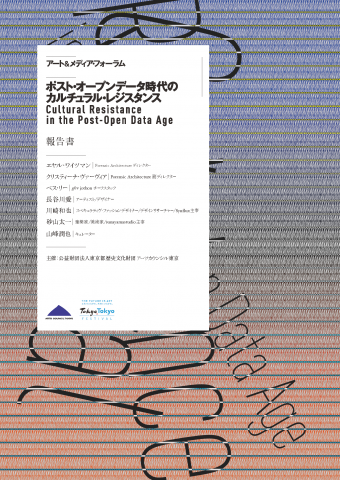- Home
- What we do
- International Network Programs
- Arts Council Forum
- Forum for Social Practice in Art/Media ‘...
Message from the organizer
Since 2016, Arts Council Tokyo has been hosting symposium with the aim to explore possibilities in the relationship between art and technology. These activities are inspired by the fact that technological progress has been creating a backdrop against which our social life continues to undergo complex transformations .
Upon entering the 21st century, we have seen rapid developments in everything from IoT to AI, biotechnology to robotics. What used to be illustrated as “science fiction“ in the 20th century, is increasingly becoming reality today. Next to the significant benefits that such technological innovation has brought along, it has also introduced a set of entirely new concerns and problems, including manipulated information and fake news spread via social media, bias in AI, and moral issues in robotics and biotechnology.
At the same time, issues like potential for violence that accumulates through regional conflicts and social polarization, and the destruction of natural environments caused by humans, remain unsolved since the 20th century. New problems arise with technological innovation, while the complexity of various aspects of the world is gradually becoming visible as a result of rapidly increasing accessibility. In an age that is defined by a mixture of such developments, art as a mirror that reflects the various facets of life has been used to depict the inner conflicts that people continue to struggle with, and to pose questions to the society.
For this forum, we invited guest panelists from the UK, Taiwan and Japan, who engage in activities interconnecting art, technology and society. They will introduce their pragmatic yet pioneering efforts that, in each case, are more than just questions asked in society, but make use of the latest technologies to work out new methods appropriate for the present age. Their presentations will focus on what initially motivated their respective activities confronting issues of violence and bias that lurk in our society, and how they formulate and persistently tackle specific social problems. In the closing discussion, we will discuss ways of establishing new social practices that continuously penetrate the community through art and culture, and how we can make the transition from passive bystanders to active practitioners.
The central theme of this forum
Resilience – The coming age of cultural resistance
Junya Yamamine
When reading an article about a certain consulting firm that used private data stored on social media to work behind the scenes of the presidential election in the United States a few years back, I was reminded once again of what goes on in the invisible world of data. The case showed how today’s information technology is so unevenly distributed that it can be used to instigate people without noticing. In other words, the power to manipulate things by influencing the unconscious mind of citizens is exactly what defines the essence of information environments in the present age. Such are the things that are happening on the opposite side of the “bright future opened up by technology” as it has been rendered through diverse and high-quality creative work.
Initially, military needs were the main driving force behind technological developments, until criticism of commercialism and authoritarianism inspired the emergence of alternative culture in the 1960s-70s. Influenced by these developments, engineers began to design computers that were eventually made widely available as individual empowerment tools. Today, technology is increasingly open to anyone in terms of both development and application, and additionally, the use of data for producing information and contents. This, however, also means that we have to keep handing such private data as access logs and positional information to someone we cannot see. In this respect, technology may seem at once like a shackles on our feet, but we have in fact entered an age in which it is no longer a tool for the powers that be, but it has become possible for us to utilize technology to break down current conditions by the power of individual intent.
Driven by the desire to deepen the exchange of ideas on such currents of the times, we invited for this forum members of two socially/practically operating collectives from overseas. Forensic Architecture, visualizes cases of the weak being exposed to state violence, for example, by capturing the remains of ethnic minority communities destroyed by terrorist groups in the form of 3-D data, or by analyzing from images on social media the situations of civilians who became victims of bombings in conflict areas. Their investigative practices and works have been exhibited in art and cultural institutions around the world. The anonymous civic tech community g0v, engages in diverse activities such as visualizing data related to budget spending by the government, revolving around freedom of speech, open-source and public benefit as central themes. Having been involved also in the Sunflower Movement, their aim is to generally raise public awareness in Taiwan. Both are collectives that maintain a certain influential power to support the community through their respective continued practices by cultural approaches.
Based on a similar attitude of “cultural resistance against authority structures,” the Japanese panelists – artists and researchers including Ai Hasegawa, Kazuya Kawasaki and Taichi Sunayama – will join and discuss such forms of resistance by way of cultural activities, from the respective alternative views they have discovered for themselves in the current technological environments.The dialogue between all participants will hopefully give us clues as to how we can make our own contribution to society more resilient and continuously penetrating, rather than just building visionary mockups.
Forensic Architecture THE BOMBING OF RAFAH Locating the attacks from ‘Black Friday’ in a three-dimentional model
13:00-13:05 Greeting from the organizer
13:05-13:30 Greeting from the planner Junya Yamamine
13:30-14:30 Session 1: Cultural resistance by advanced spatial and media investigations in the activities of Forensic Architecture
Speakers: Eyal Weizman and Christina Varvia (Forensic Architecture)
Moderators: Taichi Sunayama, Junya Yamamine
14:30-14:40 Break
14:40-15:40 Session 2: The civic tech community g0v and their use of open data as a tool for citizen empowerment
Speaker: Bess Lee (g0v)
Moderators: Kazuya Kawasaki, Junya Yamamine
15:40-15:50 Break
15:50-16:40 Session 3: Methodology for Problem-raising: From the fields of art, design and architecture to communities, cities and environments
Speakers: Ai Hasegawa, Kazuya Kawasaki, Taichi Sunayama
Moderator: Junya Yamamine
16:40-17:00 Break
17:00-18:30 Discussion by all panelists (including Questions from audience)
*Translation: Japanese/English (simultaneous interpretation), Japanese/Chinese (consecutive interpretation, closing discussion only)
*The program details are subject to change.
Free, registration required
Please register online at here.
*Your personal information will be handled as strictly confidential, and used only to operate this event and to send you information from the organizer about this event.
Deadline
December 10 2019
*First-come-first-served basis
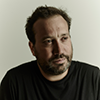 Photo: Paul Stuart for New Scientist
Photo: Paul Stuart for New Scientist
Eyal Weizman / Forensic Architecture[UK]
Founding director of Forensic Architecture and Professor of Spatial and Visual Cultures at Goldsmiths, University of London, where he founded the Centre for Research Architecture in 2005.
Published over 15 books, and has conducted research and taught at universities worldwide. Was a Global Scholar at Princeton University, and a professor at the Academy of Fine Arts in Vienna. Member of several managing and advisory boards, including the Technology Advisory Board of the International Criminal Court and the board of trustees of the Centre for Investigative Journalism. Founding member of the architectural collective DAAR in Beit Sahour/Palestine.
Studied architecture at the Architectural Association, graduating in 1998, and received his PhD in 2006 from the London Consortium at Birkbeck, University of London.
https://forensic-architecture.org/
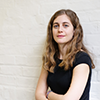 Photo: Simone Rowat
Photo: Simone Rowat
Christina Varvia / Forensic Architecture[UK]
Coordinates projects, assembles teams, oversees research and the development of new methodologies as Deputy Director. Studied architecture at the University of Westminster (RIBA Part I) and the Architectural Association (AA; RIBA Part II). Previous research – that she deploys through time-based media – involves studies in digital media and memory, as well as the perception of the physical environment through scanning and imaging technologies. Currently teaches as a Unit Master for Diploma Unit 3 at the AA, and is a member of the Technology Advisory Board for the International Criminal Court.
https://forensic-architecture.org/
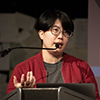 Photo: Tom Mesic
Photo: Tom Mesic
Bess Lee / g0v[TAIWAN]
Currently works at g0v jothon (a task force for hosting the g0v bi-monthly Hackathon and g0v Civic Tech Prototype Grant) as a Chief of Staff. Was an art administrator in the artist village who helped artists work with the community. The organizers and executive team behind the g0v.tw bi-monthly hackathons since 2012, the members of “jothon” also work on g0v community infrastructure (infrathon), and launched the g0v Civic Tech Prototype Grant in 2016.
http://g0v.asia/

Ai Hasegawa / Artist[JAPAN]
Artist and designer. Employs techniques such as Bio Art, Speculative Design and Design Fiction to produce works with an emphasis on subjects related to technology and people. Obtained her MA in 2012 from the Design Interactions Course, Royal College of Art in Britain, and worked as a researcher at Design Fiction Group, MIT Media Lab, from 2014 to 2016, when she received her MS. Project Researcher at The University of Tokyo since April 2017. Has been holding exhibitions in Japan and abroad at MORI ART MUSEUM and Ars Electronica among others, and won an Excellence Award in the Work Art Division at the 19th Japan Media Arts Festival for her work “(Im)possible Baby, Case 01: Asako & Moriga.”
https://aihasegawa.info/
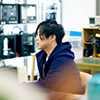 Photo: KETA TAMAMURA
Photo: KETA TAMAMURA
Kazuya Kawasaki / Speculative Fashion Designer[JAPAN]
Speculative fashion designer, design researcher. Director of Synflux. Born 1991. Completed a master’s course (Design) at the X-Design Programme at Keio University, Graduate School of Media and Governance, and is currently enrolled at the same programme’s doctoral course. Received numerous awards including a H&M Global Change Award, a Japan Media Arts Award (Art category), a Dezeen Award Design Longlist, and a Starts Prize. Was invited to participate in the Dutch Design Week (Holland) and Design Indaba (South Africa), and involved as supervisor/editor in the publication of Speculations beyond Human-Centered Design (BNN, 2019).
www.kzykwsk.tumblr.com
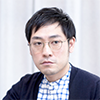
Taichi Sunayama / Architect & Artist[JAPAN]
President of sunayamastudio. Lecturer at the Kyoto City University of Arts, Faculty of Fine Arts, Department of General Science of Art. Other activities encompass production, design, planning and criticism from standpoints focusing on informative and material qualities in architecture and other areas in the greater realm of art. Graduated from Tama Art University (Sculpture) and moved to France in 2004. Graduated from the École Spéciale d’Architecture in Paris in 2008, and subsequently worked for several architectural design offices and structural design studios. Returned to Japan in 2011, and graduated from the Graduate School of Architecture / Department of Architecture, Faculty of Fine Arts, Tokyo University of the Arts. Presently works at his own studio in Tokyo, while teaching contemporary art and design theory at the Kyoto City University of Arts.
https://tsnym.nu/
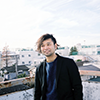 Photo by Mika Kitamura
Photo by Mika Kitamura
Junya Yamamine / Curator, Contemporary Art Center, Art Tower Mito[JAPAN]
Curator at the Contemporary Art Center, Art Tower Mito. Born 1983. Holds an MA from the Graduate School of Film and New Media, Tokyo University of the Arts. Prior to his current position, he worked at the Tokyo Photographic Art Museum and the 21st Century Museum of Contemporary Art, Kanazawa. Has been involved with a broad range of exhibitions based on media theory and encompassing such varied fields as new media and contemporary art, including “Hello World – For the Post-Human Age” and “Resistance of Fog – Fujiko Nakaya” (both at Art Tower Mito), as well as “3D Visions,” “Beyond The Naked Eye” and the Yebisu International Festival for Art & Alternative Vision Vol.4-7 (all at the Tokyo Photographic Art Museum). Guest curator at IFCA (2011, Slovenia) and “Eco Expanded City” (2016, WRO Art Center, Poland), and participant in the Ministry of Education, Culture, Sports, Science and Technology’s overseas research fellow program in 2015. Member of the Oral History Archives of Japanese Art, and of the “Asian Art Award supported by Warehouse TERRADA” selection committee in 2017 and 2018.
Translation by Andreas Stuhlmann
Forum for Social Practice in Art/Media (Media Design Research Inc.)(weekday 10:00 – 17:00, except Saturdays, Sundays and public holidays)
TEL: +81-3-5579-2877
FAX: +81-3-5579-2878
E-mail: artandmediaforum@mdr.co.jp
1F Hall, Tokyo Photographic Art Museum (1-13-3, Mita, Meguro-ku, Tokyo)
